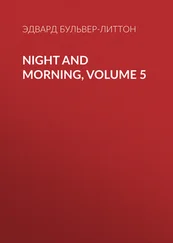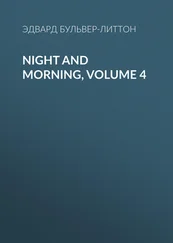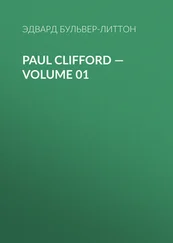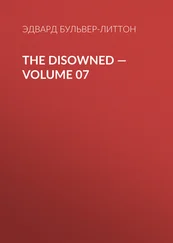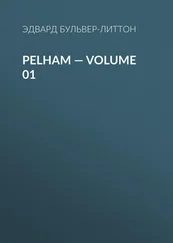Эдвард Бульвер-Литтон - What Will He Do with It? — Volume 02
Здесь есть возможность читать онлайн «Эдвард Бульвер-Литтон - What Will He Do with It? — Volume 02» — ознакомительный отрывок электронной книги совершенно бесплатно, а после прочтения отрывка купить полную версию. В некоторых случаях можно слушать аудио, скачать через торрент в формате fb2 и присутствует краткое содержание. Жанр: foreign_prose, literature_19, Европейская старинная литература, foreign_antique, на английском языке. Описание произведения, (предисловие) а так же отзывы посетителей доступны на портале библиотеки ЛибКат.
- Название:What Will He Do with It? — Volume 02
- Автор:
- Жанр:
- Год:неизвестен
- ISBN:нет данных
- Рейтинг книги:4 / 5. Голосов: 1
-
Избранное:Добавить в избранное
- Отзывы:
-
Ваша оценка:
- 80
- 1
- 2
- 3
- 4
- 5
What Will He Do with It? — Volume 02: краткое содержание, описание и аннотация
Предлагаем к чтению аннотацию, описание, краткое содержание или предисловие (зависит от того, что написал сам автор книги «What Will He Do with It? — Volume 02»). Если вы не нашли необходимую информацию о книге — напишите в комментариях, мы постараемся отыскать её.
What Will He Do with It? — Volume 02 — читать онлайн ознакомительный отрывок
Ниже представлен текст книги, разбитый по страницам. Система сохранения места последней прочитанной страницы, позволяет с удобством читать онлайн бесплатно книгу «What Will He Do with It? — Volume 02», без необходимости каждый раз заново искать на чём Вы остановились. Поставьте закладку, и сможете в любой момент перейти на страницу, на которой закончили чтение.
Интервал:
Закладка:
The servant's face changed in a moment; he bowed respectfully. "I beg pardon, sir. I will look for my master; he is somewhere on the grounds." The servant then approached the fly, took out the knapsack, and, observing Lionel had his purse in his hand, said, "Allow me to save you that trouble, sir. Driver, round to the stable-yard." Stepping back into the house, the servant threw open a door to the left, on entrance, and advanced a chair. "If you will wait here a moment, sir, I will seek for my master."
CHAPTER II
Guy Darrell—and Stilled Life.
The room in which Lionel now found himself was singularly quaint. An antiquarian or architect would have discovered at a glance that at some period it had formed part of the entrance-hall; and when, in Elizabeth's or James the First's day, the refinement in manners began to penetrate from baronial mansions to the homes of the gentry, and the entrance-hall ceased to be the common refectory of the owner and his dependants, this apartment had been screened off by perforated panels, which for the sake of warmth and comfort had been filled up into solid wainscot by a succeeding generation. Thus one side of the room was richly carved with geometrical designs and arabesque pilasters, while the other three sides were in small simple panels, with a deep fantastic frieze in plaster, depicting a deer-chase in relief and running be tween woodwork and ceiling. The ceiling itself was relieved by long pendants without any apparent meaning, and by the crest of the Darrells,—a heron, wreathed round with the family motto, "Ardua petit Ardea." It was a dining-room, as was shown by the character of the furniture. But there was no attempt on the part of the present owner, and there had clearly been none on the part of his predecessor, to suit the furniture to the room. The furniture, indeed, was of the heavy, graceless taste of George the First,—cumbrous chairs in walnut-tree, with a worm-eaten mosaic of the heron on their homely backs, and a faded blue worsted on their seats; a marvellously ugly sideboard to match, and on it a couple of black shagreen cases, the lids of which were flung open, and discovered the pistol-shaped handles of silver knives. The mantelpiece reached to the ceiling, in panelled compartments, with heraldic shields, and supported by rude stone Caryatides. On the walls were several pictures,—family portraits, for the names were inscribed on the frames. They varied in date from the reign of Elizabeth to that of George I. A strong family likeness pervaded them all,—high features, dark hair, grave aspects,— save indeed one, a Sir Ralph Haughton Darrell, in a dress that spoke him of the holiday date of Charles II.,—all knots, lace, and ribbons; evidently the beau of the race; and he had blue eyes, a blonde peruke, a careless profligate smile, and looked altogether as devil-me-care, rakehelly, handsome, good-for-nought, as ever swore at a drawer, beat a watchman, charmed a lady, terrified a husband, and hummed a song as he pinked his man.
Lionel was still gazing upon the effigies of this airy cavalier when the door behind him opened very noiselessly, and a man of imposing presence stood on the threshold,—stood so still, and the carved mouldings of the doorway so shadowed, and as it were cased round his figure, that Lionel, on turning quickly, might have mistaken him for a portrait brought into bold relief from its frame by a sudden fall of light. We hear it, indeed, familiarly said that such a one is like an old picture. Never could it be more appositely said than of the face on which the young visitor gazed, much startled and somewhat awed. Not such as inferior limners had painted in the portraits there, though it had something in common with those family lineaments, but such as might have looked tranquil power out of the canvas of Titian.
The man stepped forward, and the illusion passed. "I thank you," he said, holding out his hand, "for taking me at my word, and answering me thus in person." He paused a moment, surveying Lionel's countenance with a keen but not unkindly eye, and added softly, "Very like your father."
At these words Lionel involuntarily pressed the hand which he had taken. That hand did not return the pressure. It lay an instant in Lionel's warm clasp—not repelling, not responding—and was then very gently withdrawn.
"Did you come from London?"
"No, sir; I found your letter yesterday at Hampton Court. I had been staying some days in that neighbourhood. I came on this morning: I was afraid too unceremoniously; your kind welcome reassures me there."
The words were well chosen and frankly said. Probably they pleased the host, for the expression of his countenance was, on the whole, propitious; but he merely inclined his head with a kind of lofty indifference, then, glancing at his watch, he rang the bell. The servant entered promptly. "Let dinner be served within an hour."
"Pray, sir," said Lionel, "do not change your hours on my account."
Mr. Darrell's brow slightly contracted. Lionel's tact was in fault there; but the great man answered quietly, "All hours are the same to me; and it were strange if a host could be deranged by consideration to his guest,—on the first day too. Are you tired? Would you like to go to your room, or look out for half an hour? The sky is clearing."
"I should so like to look out, sir."
"This way then."
Mr. Darrell, crossing the hall, threw open a door opposite to that by which Lionel entered, and the lake (we will so call it) lay before them, —separated from the house only by a shelving gradual declivity, on which were a few beds of flowers,—not the most in vogue nowadays, and disposed in rambling old-fashioned parterres. At one angle, a quaint and dilapidated sun-dial; at the other, a long bowling-alley, terminated by one of those summer-houses which the Dutch taste, following the Revolution of 1688, brought into fashion. Mr. Darrell passed down this alley (no bowls there now), and observing that Lionel looked curiously towards the summer-house, of which the doors stood open, entered it. A lofty room with coved ceiling, painted with Roman trophies of helms and fasces, alternated with crossed fifes and fiddles, painted also.
"Amsterdam manners," said Mr. Darrell, slightly shrugging his shoulders. "Here a former race heard music, sang glees, and smoked from clay pipes. That age soon passed, unsuited to English energies, which are not to be united with Holland phlegm! But the view from the window-look out there. I wonder whether men in wigs and women in hoops enjoyed that. It is a mercy they did not clip those banks into a straight canal!"
The view was indeed lovely,—the water looked so blue and so large and so limpid, woods and curving banks reflected deep on its peaceful bosom.
"How Vance would enjoy this!" cried Lionel. "It would come into a picture even better than the Thames."
"Vance? who is Vance?"
"The artist,—a great friend of mine. Surely, sir, you have heard of him or seen his pictures!"
"Himself and his pictures are since my time. Days tread down days for the recluse, and be forgets that celebrities rise with their suns, to wane with their moons,
"'Truditur dies die,
Novaeque pergunt interire lunae'"
"All suns do not set; all moons do not wane!" cried Lionel, with blunt enthusiasm. "When Horace speaks elsewhere of the Julian star, he compares it to a moon—'inter ignes minores'—and surely Fame is not among the orbs which 'pergunt interire,'—hasten on to perish!"
"I am glad to see that you retain your recollections of Horace," said Mr. Darrell, frigidly, and without continuing the allusion to celebrities; "the most charming of all poets to a man of my years, and" (he very dryly added) "the most useful for popular quotation to men at any age."
Читать дальшеИнтервал:
Закладка:
Похожие книги на «What Will He Do with It? — Volume 02»
Представляем Вашему вниманию похожие книги на «What Will He Do with It? — Volume 02» списком для выбора. Мы отобрали схожую по названию и смыслу литературу в надежде предоставить читателям больше вариантов отыскать новые, интересные, ещё непрочитанные произведения.
Обсуждение, отзывы о книге «What Will He Do with It? — Volume 02» и просто собственные мнения читателей. Оставьте ваши комментарии, напишите, что Вы думаете о произведении, его смысле или главных героях. Укажите что конкретно понравилось, а что нет, и почему Вы так считаете.

